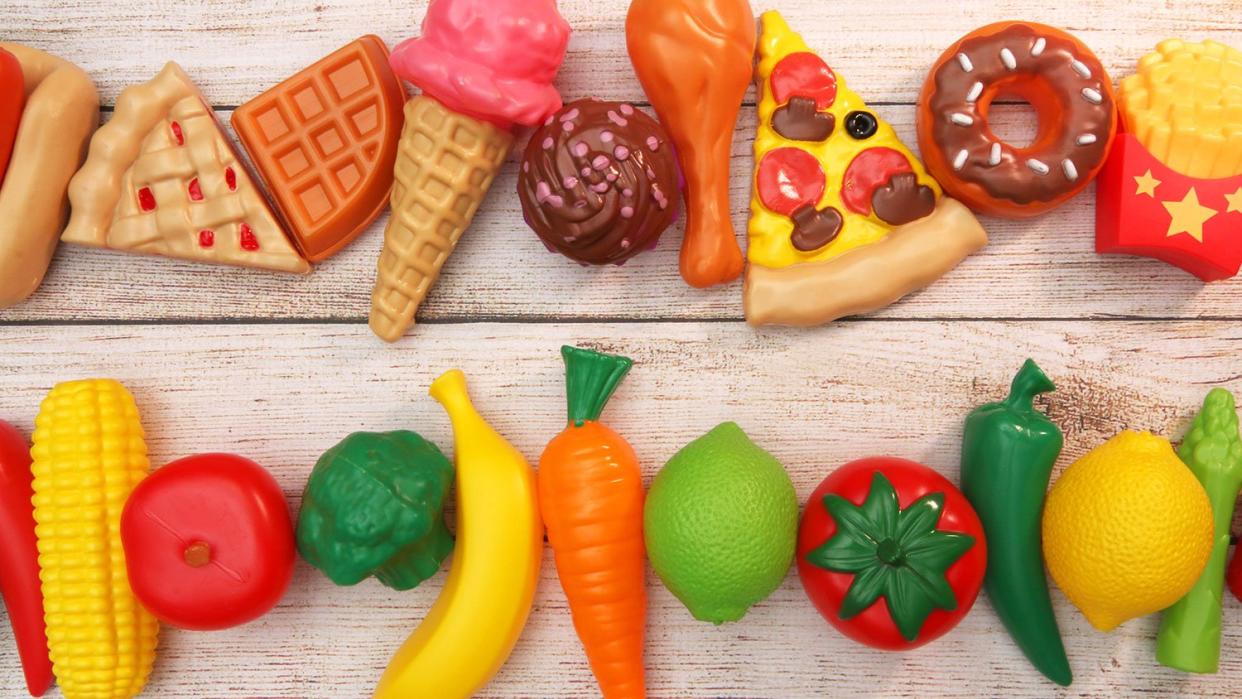5 Ways To Avoid Buying Fake Food

Professor John Spink is the director of the Food Fraud Initiative at Michigan State University, where he collaborates with the food industry to create policy that keeps what we eat safe.
Spink defines food fraud as “any illegal deception for economic gain using food.” That means that the term doesn’t just apply to what’s inside your groceries; it applies to the labeling too. If you buy a bottle olive oil labeled "100 percent extra virgin" for instance, but tests reveal that it’s actually only 99 percent extra virgin mixed with 1 percent other olive oil, the manufacturers are liable for food fraud. Although Spink also emphasized that lots of food fraud like this isn't actually harmful. “The vast majority of all food fraud does not have a public health threat. It’s very rare that a fraudulent product is dangerous,” he says.
Just looking at your food won’t do the trick. Spink said there are few visual signs that you’re food might be fake, except perhaps a misspelling on the label. But those types of mistakes are rare.
“The bad guys are smart. Those get corrected.” Same goes for choosing the more expensive product over a cheaper version. “If you assume that a price is too good to be true, the counterfeiter will just raise the price.”
Spink recently came up with five steps consumers should follow to avoid becoming victims of food fraud. Here’s his advice on how stay vigilant:
1. Trust the Supplier
“In general for anything that you eat, put on your body, or plug in the wall, be careful of the supplier,” he said, advising that people should be especially cautious of anything that comes from a flea market or a discount store because “counterfeiters do not have quality control.”
2. Get to Know Your Grocery Store
Buying from a small mom-and-pop shop is probably good for your neighborhood, but it's also a good way to avoid food fraud.
“If this is a local wine and cheese store, they don’t want you to stop shopping there and they don’t want to be known for selling fraudulent products,” he said.
3. Don't Buy Online If You Don't Have To
If you do want to shop online, make sure the retailer is validated by an outside source.
“If a hospital or insurance company or a employer recommends a [pharmaceutical company] that’s a good way to know it’s reputable. People can hijack websites.”
4. Do Your Best To Verify Premium Products Especially
Spink also points that high quality products have a higher fraud opportunity, because many people can’t taste the difference between that and it’s low quality equivalent.
“Its one thing is you see a $5 Rolex for sale. That’s what we non-deceptive counterfeit. With food and medicine, we’re not looking for a knock-off. For instance, you might buy a $50 Brunello, and you’ll feel like you got a good deal, but it’s really a mixture.”
5. Report Anything Fishy
If you do suspect that something in your food is off, Spink says you should immediately return it to the retailer, and complain.

